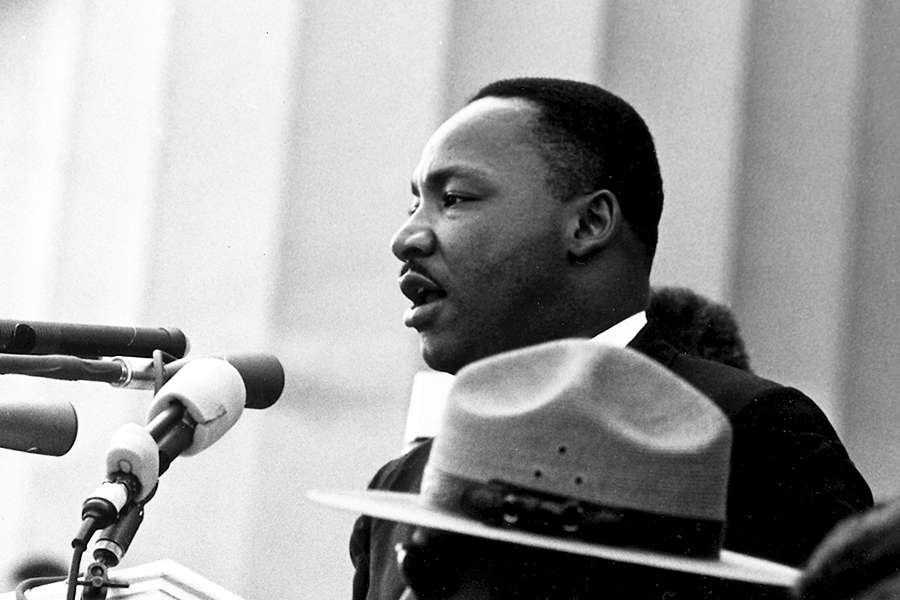
Formation
How should we respond to persistent racism in our country?
June 11, 2020
As summer arrives and the diocesan newspapers’ publication deadlines are less frequent, it becomes increasingly difficult to choose what to write about in this column. It seems like these days, newsworthy events come up every day – or even hourly. In short, there is much political news to talk about, and too little space. Be that as it may, I’ll strive to offer some brief commentary, but ultimately invite you to join me in taking time this summer to seek a greater understanding of issues that matter most to us as Catholics.
RACISM
For centuries, our country has felt the sharp pangs of racism that, as Archbishop Lucas put it, “too often remain embedded in our institutions and in our communities” (see his statement, page 6). Most recently, the slow and brutal death of George Floyd was a “sin that cries out to heaven for justice,” as the president of the United States Conference of Catholic Bishops (USCCB), Archbishop Jose H. Gomez, put it. Floyd’s death, and the protests and riots that ensued have left a stark image in our social consciousness. Americans have felt anger, outrage, sadness and confusion, among many other things.
These questions always remain with us: What is the path forward for our nation? More specifically, what does a path forward look like for those who follow Christ?
The prophet Micah offers such a path. As the Catholic Bible Dictionary explains, the Book of Micah in the Old Testament concerns itself with, among other things, the “social injustices that were wreaking havoc in the southern kingdom” of Israel. The people of God had been unfaithful to the covenant, they had worshipped false gods and taken up the mantle of paganism. Micah predicted catastrophe for the people and their nation, unless they repented and returned to the Lord.
In the midst of these social injustices and the unrest, Micah prophesies on behalf of the Lord, in the form of a question: “With what shall I come before the Lord, and bow myself before God on high?” To which Micah responds: “He has showed you, O man, what is good; and what does the Lord require of you but to do justice, and to love kindness, and to walk humbly with your God?”
This ethos was expressed by our U.S. bishops when they responded to the racism underlying Floyd’s killing: “We must stand for the more difficult right and just actions instead of the easy wrongs of indifference. We cannot turn a blind eye to these atrocities and yet still try to profess to respect every human life.”
In short, we must respond to the disenfranchisement of people of color and the systemic racism that lingers in our many institutions with justice, kindness and humility. The path to justice will always be through peace. We must stand up for those who are oppressed, hear out those who voice their concerns, and we must also condemn any violence (including riots) which are, as Pope Francis put it, “self-destructive and self-defeating.”
Notably, one more path forward would be for each of us to take some time in the next week to read the U.S. bishops’ 2018 statement on racism, “Open Wide Our Hearts: The Enduring Call to Love – A Pastoral Letter against Racism.” This concise, 30-page document offers a vision rooted in the person of Jesus Christ for addressing racism in our time. It is an excellent point of departure as we seek to eradicate the sin of racism and the sinful social structures that perpetuate it.
As time passes, the general challenge will be to keep the systemic problem of racism in the forefront of our minds and hearts. While it is too easy in our information age to move from one thing to the next, the Lord invites us to more deeply pray, ponder and act.
RELIGIOUS LIBERTY
From June 22 to June 29, The USCCB will be celebrate Religious Freedom Week. This year’s theme is “For the Good of All.” The USCCB has provided some helpful resources. As we have done in the past, the Nebraska Catholic Conference will offer some regular content to help celebrate this event. We intend to host some virtual presentations and panels to talk about religious liberty in our current political climate. We will also provide some other prayer and educational resources. To find out more, join our Catholic Advocacy Network of Nebraska at www.necatholic.org.
Tom Venzor is executive director of the Nebraska Catholic Conference, with headquarters in Lincoln. Contact him at tvenzor@necatholic.org.